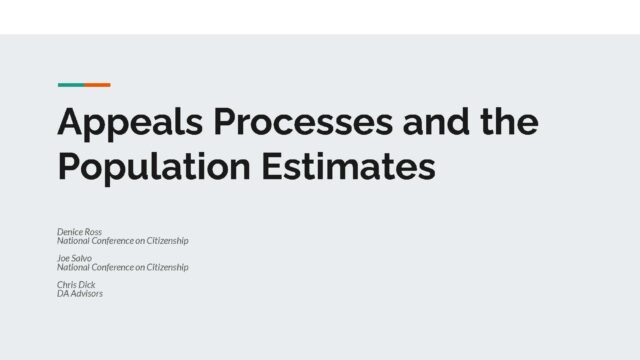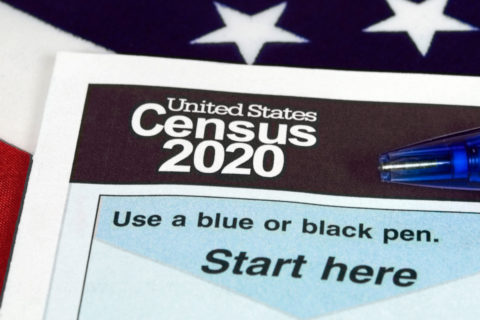As city leaders await the release of redistricting data, questions about data quality are at the top of mind. The Census Bureau provides two mechanisms for addressing potential errors: the Count Question Resolution (CQR) process and the Population Estimates Challenge process.
To shed light on these two processes, we spoke to the experts: Denice Ross, Senior Fellow at the National Conference on Citizenship, and a Fellow at the Beeck Center for Social Impact and Innovation; Christopher Dick, formerly of the Census Bureau’s Population Estimate program and founder of Demographic Analytics Advisors; and Joe Salvo, former Chief Demographer at the New York City Department of City Planning, currently at the National Conference on Citizenship.
Key takeaways include:
- CQR is limited to correcting geographic and data processing errors, and only affects the base for population estimates going forward. It does not affect redistricting and apportionment. Historically, changes as a result of CQR have been very small.
- The impact of the pandemic and truncated non-response follow-up (NRFU) process was especially acute for group quarters, such as prisons and nursing homes. This is one of the key points in a new proposal to expand the scope of CQR, which could allow cities to provide administrative records to the Census Bureau. Cities should start compiling documentation now in preparation for possible expansion of the CQR process.
- Local leaders can get involved by preparing to weigh in before the Census Bureau sets the guidelines for Population Estimate Challenges and weigh in on the Federal Register Notice and collect supplemental data and methodologies in advance of a possible challenge.
Original event date: July 15, 2021









